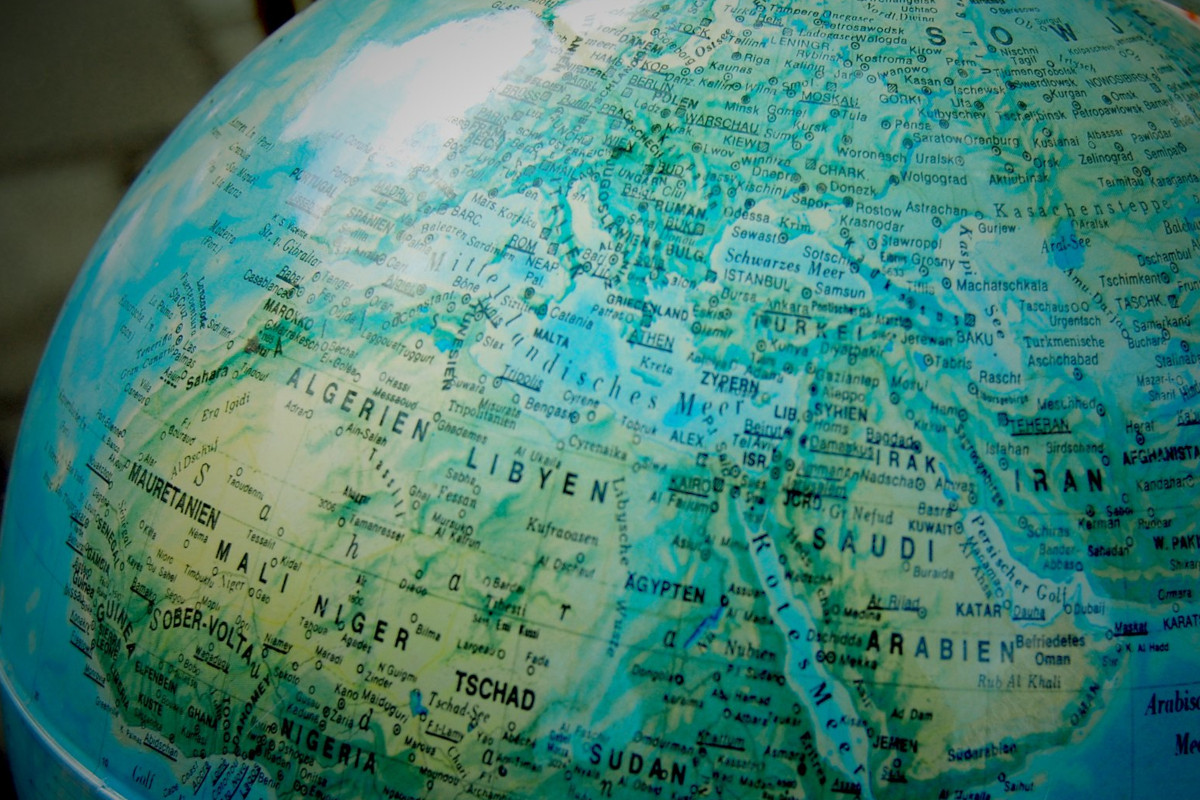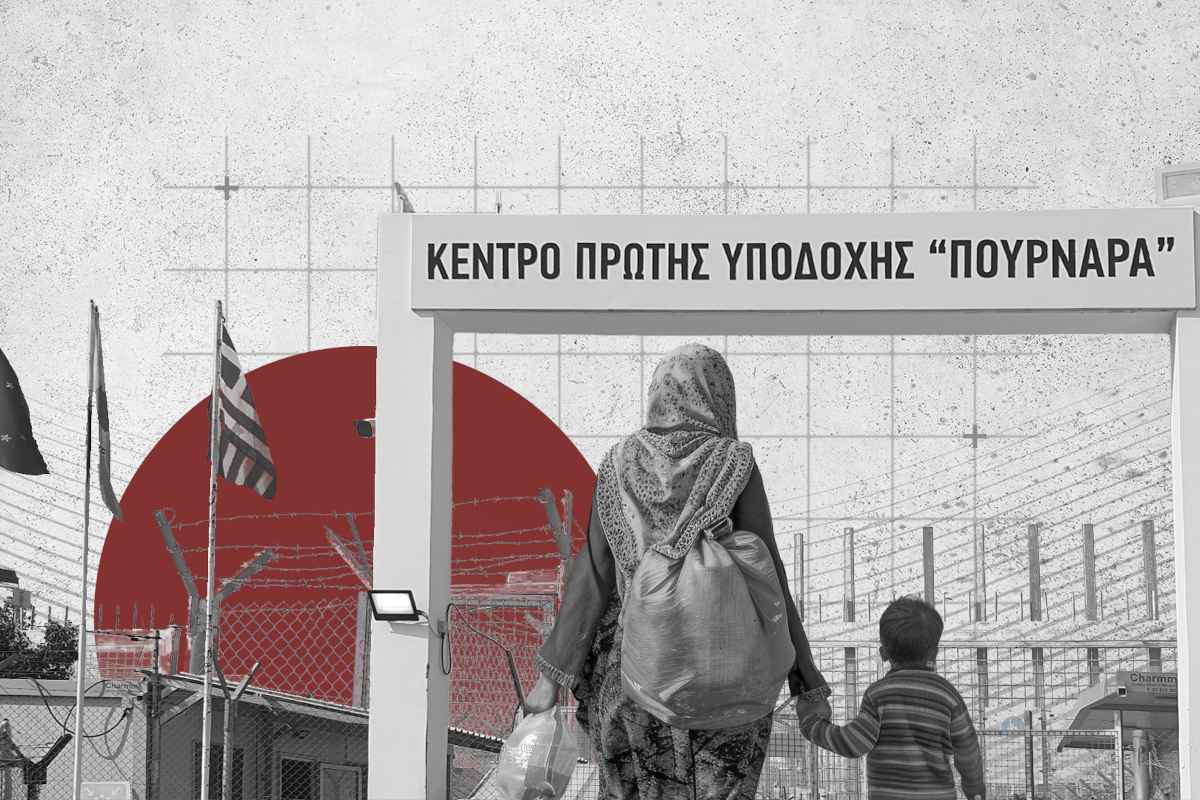Protest in Ceuta commemorates "all those who, in search of a better life, met their death"
Topic
Country/Region
12 February 2025
On 8 February, activists and campaigners once again gathered in the Spanish enclave of Ceuta to demand justice for the deaths of 14 people in 2014. The 14 drowned after Guardia Civil officers fired rubber bullets and tear gas at them as they tried to reach Spanish territory. The manifesto of the 'XII March for Dignity', supported by Statewatch and published here, calls for the Spanish state to "make reparations to their victims and establish mechanisms to safeguard lives at the borders."
Support our work: become a Friend of Statewatch from as little as £1/€1 per month.
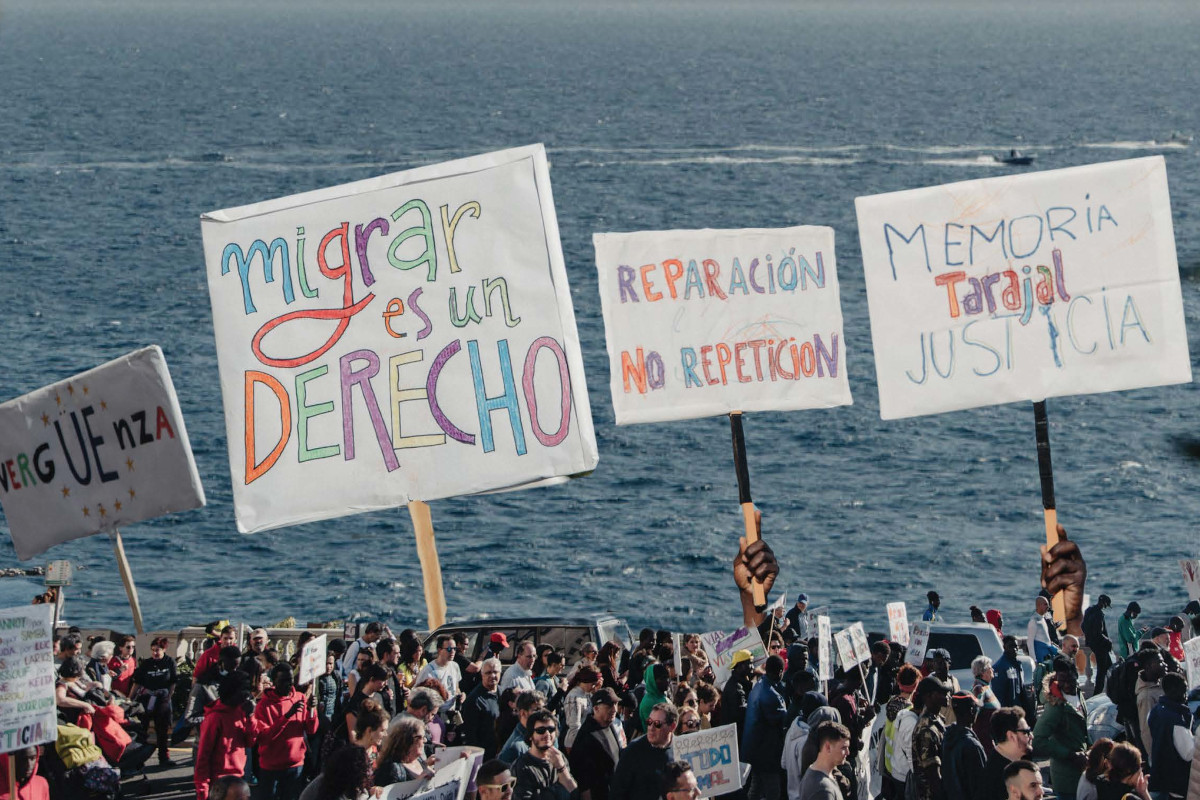
Manifesto of the XII March for Dignity
08/02/2025
After yet another year, we gather on Tarajal beach to denounce and demand justice for the deaths of 14 of our brothers on 6 February 2014: Yves, Samba, Daouda, Armand, Luc, Roger Chimie, Larios, Youssouf, Ousmane, Keita, Jeannot, Oumarou, Blaise and another companion whose name we do not know. After yet another year, we gather to commemorate and remember these people and all those who, in search of a better life, met their death.
On this beach, 14 people drowned while the Guardia Civil fired rubber bullets and tear gas at them to prevent them from reaching the coast. 23 people were push-backed to Morocco from the same beach without access to any formal procedure. Throughout these years and despite the complaints, justice has not been done, responsibilities have not been met and no reparations have been made to the victims or their families.
After 11 years, the legal proceedings are still pending before the Constitutional Court, which admitted the appeal in June 2023. We trust that the Constitutional Court will recognise that the fundamental rights of the victims and their families have been violated, and that justice will be done.
Despite all the tragedies that have taken place at the borders and the cries for justice from the victims, their families and human rights organisations, the deaths and disappearances at the fences and at sea continue to increase every year.
According to the latest report by “Caminando Fronteras”, in 2024 alone, 10,457 people have died trying to reach Spain, including men, women, young people, boys and girls, people with families, desires and dreams cut short by the lack of legal and safe ways to migrate, due to migration and border externalisation policies, as well as the recent European Pact on Migration and Asylum, which seeks to increase control and repression at borders, and legalise human rights violations.
These migration policies are reinforced by hate speech and institutional racism that legitimise and allow rights violations at the border to go unpunished. These migration policies make migrants and refugees arriving in Spain invisible and criminalise them, denying them a dignified reception and the recognition of their dignity as persons.
For all these reasons, we denounce:
- The lack of real political will to guarantee a dignified reception for migrants and refugees who arrive in Spain after very violent and deadly routes, subjected to poor living conditions in precarious resources and spaces that do not meet dignified conditions and further aggravate the physical and psychological wounds of the route
- We denounce the ‘European Pact on Migration and Asylum’, incompatible with human rights, which will cause tragedies like the Tarajal and the Melilla Massacre to continue to be repeated.
- We denounce the administrative violence that hinders the access of many people to know their rights, to apply for asylum, exposes them to more violence such as labour exploitation, homelessness, and makes institutions just another border.
- We denounce the instrumentalization of migrant people and the exploitation of their bodies.
- We denounce the neo-colonialism present in development cooperation policies at the service of border control and externalisation.
- We denounce the State's failure to take responsibility for the thousands of deaths of migrant people at sea each year, omitting its duty to provide rescue, resulting in a failure to search for missing persons and the continued existence of unidentified persons.
- We denounce the never-ending cycle of deaths and disappearances on the beaches of Ceuta and Melilla and during other routes to reach Spain.
- We denounce racism in all its forms, but today above all, that which targets migrant lives at the borders through institutions and border policies.
For all these reasons, we demand:
- That the State assumes its responsibility for deaths at the borders, such as those of the Tarajal Tragedy and the Melilla Massacre, make reparations to their victims and establish mechanisms to safeguard lives at the borders.
- We demand better management of public resources and budgets, investing in more social policies that offer a dignified reception for all migrants and refugees.
- That effective access to the right to asylum be guaranteed to all those who request it both inside and outside Spanish territory, guaranteeing their protection and respect for their rights.
- That an end be put to the externalisation of borders and that priority be given to agreements that guarantee human rights. These agreements should be subject to public evaluation and transparency mechanisms should be created with the participation of NGOs.
- Implement an independent monitoring system at the border to ensure that security forces act with full human rights guarantees.
- Ensure safe and legal channels. Reform visa policies and review the criteria for granting visas, improving the transparency of the process and making visas more accessible to all.
- Promote active policies to combat hate speech, racism and xenophobia.
- To abolish legislation that undermines the dignity of migrants and racialised people.
- Guarantee the rescue of all people in peril at sea.
- Recognition of the right to free movement of all people.
Yet another year we gather here to shout that all lives matter, that migrant lives matter, that black lives matter. We will continue to fight for as many years as it takes for all lives to be respected and dignified. We will continue to gather and raise our voices for all border victims. We will continue to demand justice, truth, reparation and guarantees of non-repetition for them and their families. Migration is a right. No more deaths at the borders.
Our work is only possible with your support.
Become a Friend of Statewatch from as little as £1/€1 per month.
Further reading
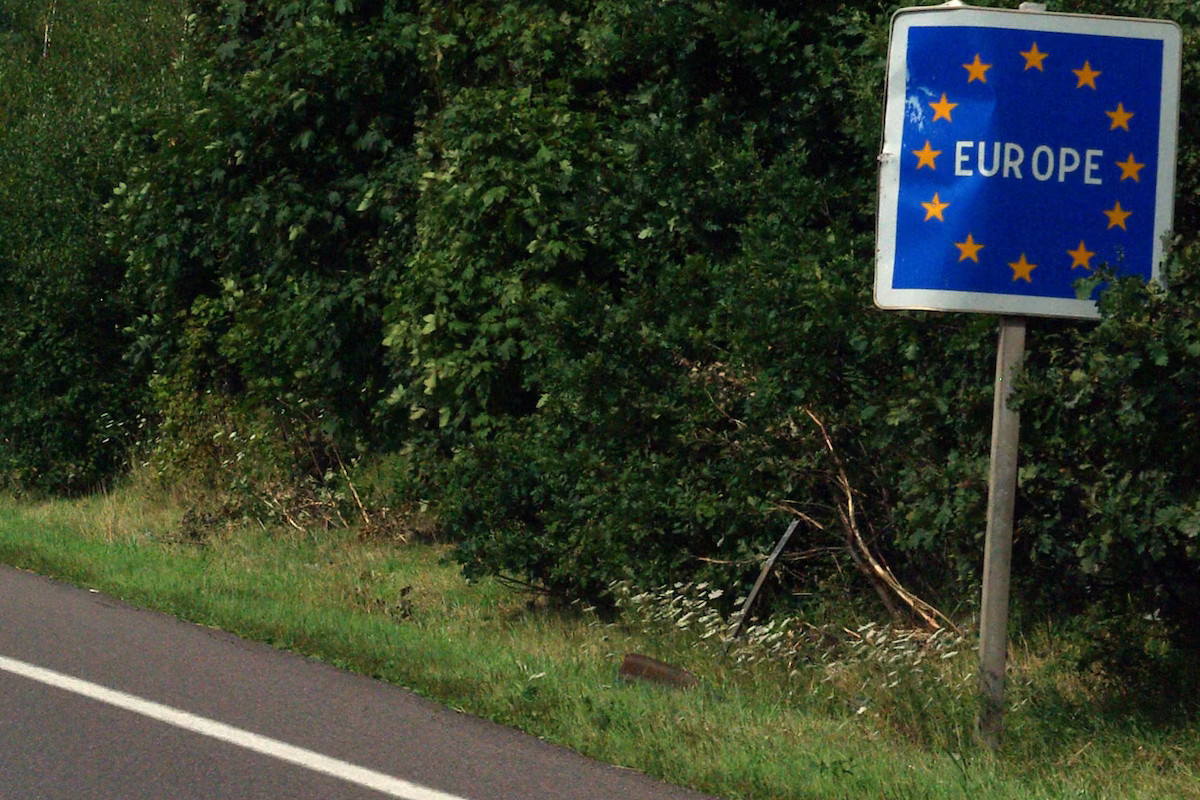
Viewpoint: How to make fences and influence people: a simple guide
Are you an EU member state looking to divert attention from the human rights abuses you are committing at your border? By following this simple guide, you can ensure that not only will the European Commission, the “Guardian of the Treaties”, turn a blind eye to those abuses, but that you will receive a healthy cash injection at the same time!
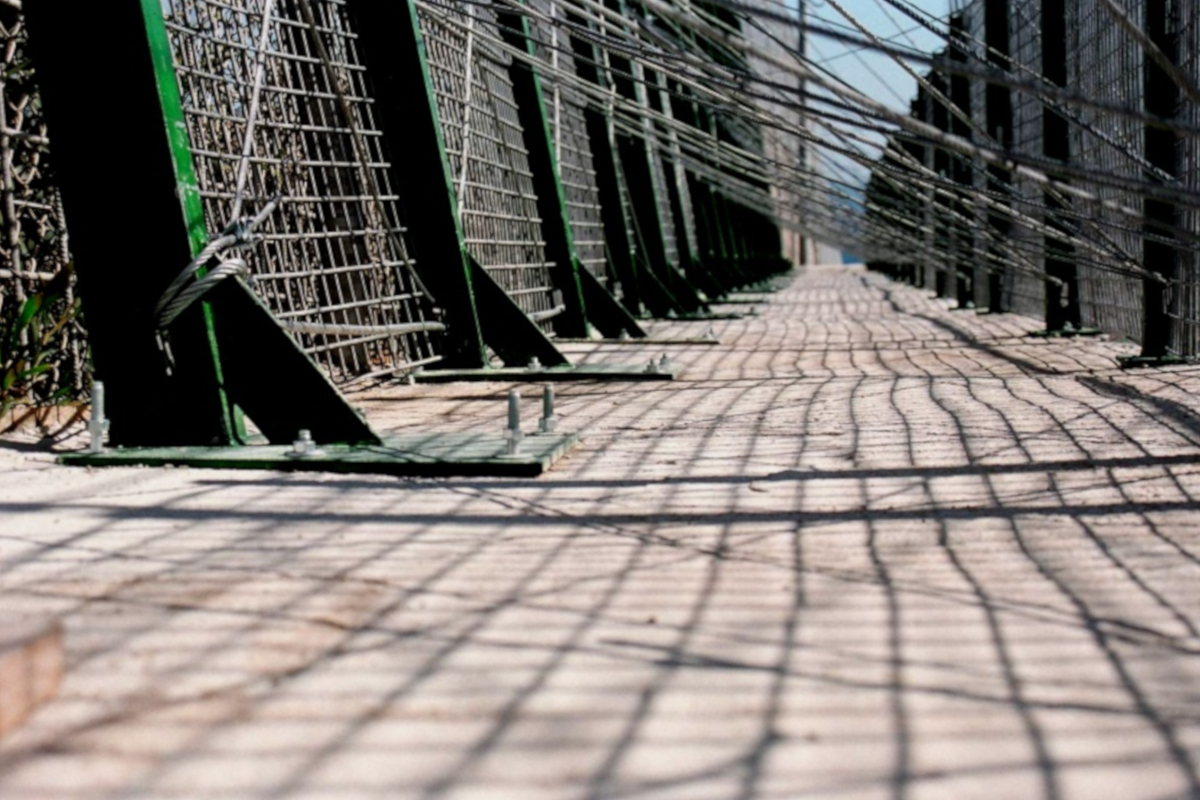
The Melilla border deaths represent a new phase in the bloody story of Fortress Europe
On 24 June dozens of people died after attempting to cross the heavily-fortified border from Morocco into the Spanish enclave of Melilla. A report by the Nador branch of the Association Marocain des Droits Humains (AMDH), summarised and built upon here, examines the build-up to and immediate aftermath of the deadly incident. The report documents multiple human rights violations and also reveals a significant shift: from EU authorities undertaking pushbacks and leaving people to their fate in situations in which they may come to harm, to EU authorities undertaking pushbacks with the explicit knowledge that they would be beaten and treated in an inhumane and degrading manner by their non-EU ‘partners’.
After six long years, no justice for border deaths and pushbacks to Morocco from Spain
Sixteen Guardia Civil officers have walked free from court in Cádiz following a ruling that there is insufficient evidence to prosecute them for their involvement in the deaths of 15 people who tried to reach Spanish territory by sea, and the ‘hot return’ (summary expulsion) of 23 other people to Morocco, in February 2014.
Spotted an error? If you've spotted a problem with this page, just click once to let us know.
